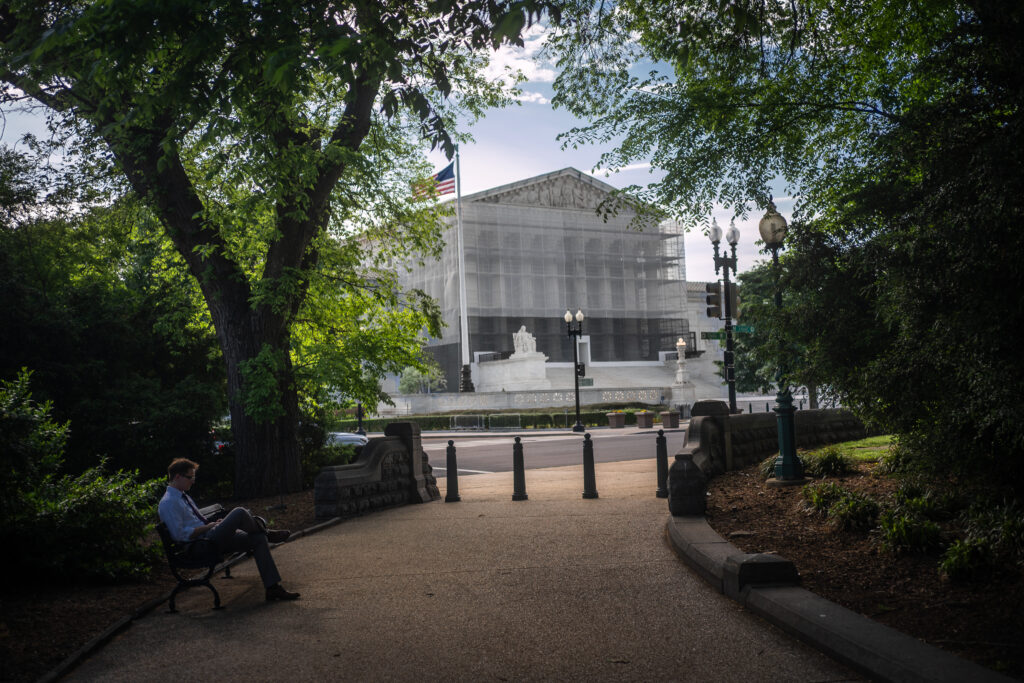In 2021, a Mississippi jury found Jeffrey Clyde Pitts guilty of sexually abusing his 4-year-old daughter. When the girl testified against her father in court, a screen was placed between her and Pitts to protect her from trauma.
That screen helped her provide the critical testimony, state officials said. But it may have been improper in light of the constitutional right for criminal defendants to face their accusers, the Supreme Court said Monday.
The 6th Amendment right of defendants to face their accusers has often clashed with the need to protect child sexual-abuse victims from trauma when they testify. In 1990, the Supreme Court held that placing a screen between a child victim and the defendant can be constitutional — but only if the trial court makes a special finding that the screen is necessary.
But “before invoking this procedure, a court must proceed with care,” the justices noted in Monday’s unsigned order. The Mississippi courts did not specifically consider whether the screen was needed in this case, the high court said in ordering the state’s Supreme Court to examine whether that error should result in a new trial for Pitts.
In February 2021, a Rankin County jury found Pitts guilty of sexual battery. He was sentenced to 30 years in prison. But Pitts argues the trial court made no finding that the screen was needed. Instead, Pitts said, prosecutors invoked a Mississippi law that gives child witnesses the absolute right to a screen that allows them to testify without seeing the defendant. That violated his constitutional rights, necessitating a new trial, Pitts said.
The Mississippi appeals court, and later the state’s Supreme Court, rejected his argument. In May, Pitts appealed to the U.S. Supreme Court.
The high court noted on Monday that the trial judge had reservations about the Mississippi law, noting his “concerns about [his] ability to declare the statute unconstitutional and fail to follow it.”
Even if an error occurred, however, it may not be enough to prompt a new trial, the justices wrote.
“Just because a constitutional error took place at trial does not necessarily mean a new one must be held,” they noted.
Since at least the mid-1960s, the court has held that certain errors at a trial can be considered “harmless” if it is clear beyond reasonable doubt that the defendant would have been convicted anyway.
“This Court has held that the denial of the right to face-to-face confrontation is among those errors ‘subject to that harmless-error analysis,’” the high court wrote in its Monday order.
If the Mississippi Supreme Court finds the error in this case was harmless, the high court wrote, a new trial will not be necessary.
Stuart Banner, Pitts’s attorney, was pleased with Monday’s order. “The Court corrected an egregious error that took place at Mr. Pitts’s trial,” Banner, who works with the UCLA School of Law Supreme Court Clinic, said in an email. “On remand, the Mississippi Supreme Court should find that the error was not harmless.”
The Mississippi Attorney General’s office did not immediately respond to a request for comment.
The post Supreme Court tells state to reconsider screening child victim from defendant appeared first on Washington Post.




